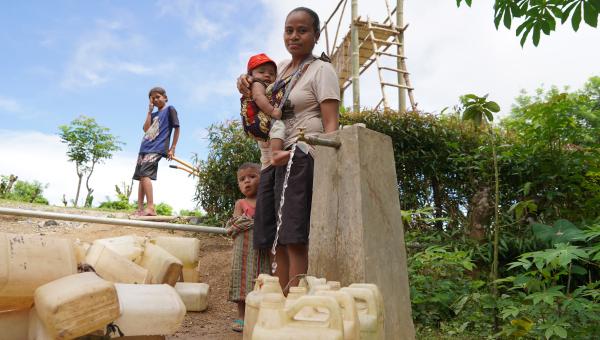
Gender equality
Challenges & Opportunities
National legislation in Timor-Leste reflects principles of gender equality in line with international commitments. However, implementation lags behind and the differences between traditional and formal law creates environment in which women still face discrimination and inequality in social, economic, and political life.
Female representation in government: Following the 2018 national election, 35% of parliamentarians are women, as are 33% of members in local Suco councils, however, only 21 (of 442) Suco Chiefs are women. One highlight is that the Technical Secretariat for Electoral Administration (STAE) has committed to having 50% of polling station staff as women, which increases female trust in the electoral process.
The gender pay gap and access to economic empowerment: Timor-Leste ranks 124 out of 149 countries and therefore takes the bottom spot in the East Asia and the Pacific region in the Gender Gap report of the World Economic Forum. A significant gender gap remains on its Economic Participation and Opportunity subindex.
Gender-based violence in the courts: In 2018, out of the total number of 456 criminal cases, 290 were domestic violence cases involving women and minors. UNDP supports mobile courts across the whole country, which predominantly handle criminal cases with an average of 60% gender based violence cases and more specifically domestic violence cases.
Commitment Assistance Empowerment
UNDP has been assisting Timor-Leste to achieve its gender equality goals for over two decades by now. Our support is focused on economic and political empowerment of women and on creating policies and legal environment that promote meaningful equality between men and women in every area of life. UNDP’s collaboration with a wide range of partners, including Government, Parliament, civil society, academic institutions, private sector, international organizations and the media, contributes to establishing a powerful community built around the principles of equality and antidiscrimination.

 Locations
Locations




